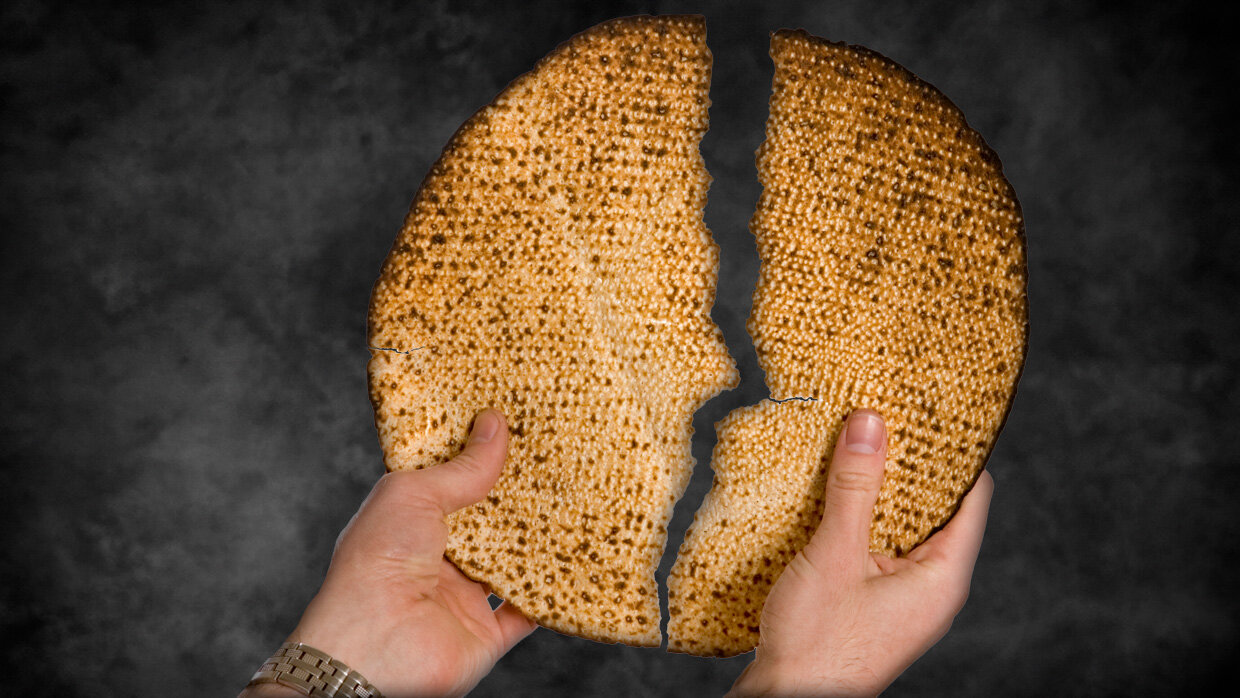 An Open Letter to University Presidents
An Open Letter to University Presidents


4 min read
Poignant moments during the Seder where you can directly address the current difficult situation the Jewish People is facing.
It’s been more than a half a year that Israel is at war. We will be observing Passover, the holiday of freedom, while our beloved brothers and sisters are still being held hostage in Gaza. So many soldiers protecting our nation will not be home to celebrate with their families.
This year, the Seder takes on a unique complexion.
There are some poignant moments during the Seder where you can directly discuss the current difficult situation. Towards the beginning of the Seder you break the matzah in half.
An exquisite explanation in chassidic thought suggests that the breaking of the matzah represents the brokenness in the world. The broken matzah symbolizes the innumerable broken hearts, broken lives, the endless tears. It signifies that the world is badly fractured. Knowing this is the prerequisite to repairing it.
After splitting the matzah, the larger broken piece is carefully tucked away and hidden. This is known as the Afikoman. It is this piece of broken matzah that will be brought back to the table at the end of the Seder when everyone at the table eats a piece of it.
Who brings the piece of matzah back to the table? The long held custom is for the children to search for it and they then excitedly present it to everyone.
There is far-reaching symbolism here. Who will fix the brokenness? If we, in our day, are unsuccessful in mending the deep fragmentation, we have faith that our children will. During the Seder our children bring back the broken piece and make the world whole again. (The Night That Unites Haggadah p.66)
The Seder is known for being a night of questions and answers. And yet, perhaps the most important lesson to convey to our children Seder night is not that we have all the answers. Rather, we need to share that in life we are faced with many questions, and there will be some questions that we simply cannot answer. But one thing we are sure of is that we have God in our lives. And that God is good and full of compassion.
When reaching the Seder’s end we drink a fourth cup of wine, lifting that cup of wine to acknowledge, with anticipation, the future redemption. As the Seder comes to a close we are making the following statement to our children (and to ourselves and all those around the table): “I don't know when the redemption will happen. I don't know how it will happen. But one thing I know beyond a shadow of doubt, my dear children, is that the redemption will come.” In a word, the night of Seder is a night of faith. (Ibid., p. 252)
The Lubavitcher Rebbe cited the well-known explanation that the three pieces of matzah placed on the Seder table correspond to the three distinct segments that make up the Jewish people: Kohen, Levi and Yisrael. The Rebbe added that the acronym comprised of the first letters of each word spells out the word KLI, which means “vessel” in Hebrew. This teaches that every Jew must endeavor to be a vessel, a repository filled with sanctity and kindness.
The Rebbe shared his unique practice of choosing pieces of matzah for the Seder that were not completely flat, but pieces that, in some measure, were bowl shaped, so that they resemble a receptacle. The matzah signifies that we must fashion our own lives in such a way so that they are brimming with benevolence and generosity. We are to be givers. (Haggadah Shel Pesach of the Lubavitcher Rebbe, p. 32)
Troubling times abound. We feel besieged by hordes espousing hatred. But as a people we know how to respond. We reach even deeper into our reservoirs of faith. Every Jew, Kohen, Levi, Yisrael, must continue to contribute, each in their own way, to bring light to this darkness. We must continue to uplift one another and widen the path towards a better future. We continue to pray to God for comfort and for salvation.

Thank you for your teaching! 🙏
Excellent, timely interpretation of Yachatz!!! Thanks Rabbi Goldscheider!